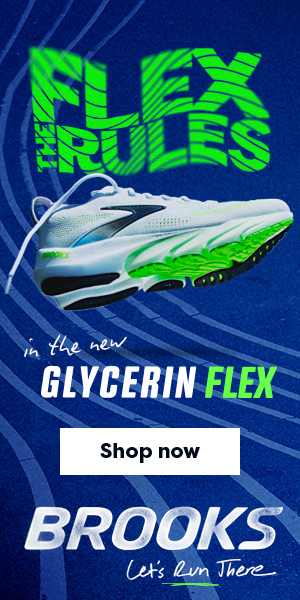Reece Anderson grew up playing a range of sports. “Like any New Zealand kid, I played rugby, and tennis.” But running was his main gig, particularly cross-country where he represented his country. However, it was in his teens that his running flourished. “I always dabbled in running, but when I got to 14 or 15, I started to take it more seriously.” So much so, he was ranked second in New Zealand for the 3000m when he left school.
After school, Reece continued to work on his running. “When I was 20, I broke my foot, so running went on the back burner.” He tried to return to the sport he’d always loved, but found it hard to juggle rehab, work and training. “I continued to struggle with the injury and lost my fitness and motivation.”
It was during his early 20s, Reece noticed something out of the ordinary. “I started having random head and facial movements and found it hard to swallow.” He visited numerous doctors, but no one could give him any answers. “They told me it was stress.” This was the start of a “rough patch” for Reece. “I was running now and then, but started having severe anxiety attacks and became withdrawn.”
In 2007, Reece decided it was time for a change. “I woke up, and just like that, decided to move to Brisbane.” The move didn’t help with his random movements or anxiety. “I ended up seeing an Aussie doctor who was finally able to help.” Diagnosed with “tics” (a disease that causes sudden uncontrollable repetitive movements and a condition that usually affects children) Reece struggled while on medication. “I found myself avoiding social events and was in denial.”
Meeting his partner, Emma, in 2008 changed a lot of that. “I’ve been so lucky, Emma has been my rock.” Reece continued to run occasionally, but nowhere near his best. While still struggling through his disease, February 2010 provided a huge setback. “Mum was diagnosed with an aggressive form of cancer.” Sadly, she lost her battle in April 2011, aged 50.
While a terribly sad time, remarkably it was also when Reece rediscovered his love of running. “I went back to New Zealand to help out after mum passed. I went for a run with my brother and he beat me for the first time ever.” That was motivation enough. When he returned to Brisbane Reece became focused on doing something positive for his mum. He joined a running group and decided to run a marathon to support the Cancer Council of Queensland.
“I actually thought about running the marathon on a treadmill at work one day. The next thing I knew, we were Googling the world treadmill running record (145.5km in 12 hours) and that became my goal.”
Reece chose 16 August to attempt the record. “It was mum’s birthday, so it was the perfect date.” Located in a shopping centre, his work was the perfect location.
Reece stepped up his training, eventually to 150km per week, with a mixture of road and treadmill running. He began his attempt at 7am. “My support crew was incredible from the start, with many still trying to raise funds throughout the day,” recalls Reece. “It was the hardest day of my life. I had to hold 11- to 12-kilometres per hour to get close to the record.” Throughout the day people continued rallying behind Reece with a live steam to New Zealand for his sister and dad to watch.
He felt good for the first few hours. “Fatigue set in at the 60km mark though.” Even with the training behind him, Reece knew the record was soon out of his reach. So he turned his focus to making it to 100km. “The last 10km was emotional, there were people cheering me on and my body was in agony.” With only seconds to go, he hit the 100km mark and achieved the eighth longest treadmill distance recorded and managed to raise more than $15,000.
Reece is now also giving back to the disease that has impacted his life so greatly over the last few years. “I’ve done a few races raising money for the Tourettes Association of Australia (tourette.org.au) and I’m doing six marathons next year overseas and running a 850km trek through Spain.”
“I’m also volunteering as a support leader to help kids understand you can still get the most out of life even with this disease.”

